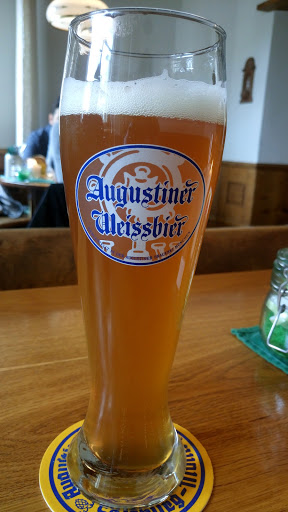Over 500 years ago, today in 1516, the ‘German Beer Purity Law’ or ‘Reinheitsgebot’ was established.
If you are a beer geek, you probably know what this means. But, for the benefit of the other beer lovers.. the Germans established regulations for what ingredients can be used for a drink to be categorized as ‘Beer’. The ingredients were limited to the absolute essentials – water, hops, and barley. This law was first adopted in Bavaria, the heart of the German beer land and was then pushed for adoption across the rest of the country. April 23rd is celebrated as the Day of German Beer or National Beer Day across Deutschland.
In Germany, beer is generally synonymous with Lager . When you walk into a traditional German brewhouse and order for a beer, you will be served one of their lager styled beers – it could be a Helles (pale lager) or a Dunkel (dark lager). The Helles is your typical Pilsner, a heavily hopped lager. Not being huge fans of the Pils style, we generally drink a Pils in the absence of other options. It is the predominant beer style in the Oktberfests. Also, why we are not huge fans of the much renowned German Oktoberfests. Ironically, apart from the beer, it’s still a worthwhile Bavarian cultural experience to share with family and friends.

Another German style of lager that we actually enjoy quite a bit is the Bock. The Bock is stronger, hoppier, and maltier than the Pils and there’s a ton of good bocks brewed across Germany. Here are two of our favorite bocks.


Märzen is another German lager style – it is a seasonal lager that derives its name from the fact that it is brewed in March (März in German). The style was created out of necessity rather than experimentation and is characterized by strong hops that helped preserve the flavor during the subsequent six months when brewing was forbidden. If you happen to be in Germany between March and October, you will typically be served a Märzen when you ask for a beer.

Another interesting German lager style is the Kölsch. This is not necessarily a different style but just creative branding by the Cologne brewers. If you ever visit Cologne, you will find that the local beer is called a Kölsch – it really is just your pils with a different name in Köln (German for Cologne). The Kölsch however is served in small glasses.

Although one might not expect it, the Weizens (wheat beers) did not conform to the original German Beer Purity Law. The law was updated a few decades later to allow for the addition of wheat, the primary ingredient of Weissbiers. Also, interestingly, at the time of the implementation of the beer purity law, the beers were not fermented by the deliberate addition of yeast – this also happens to be a late addition to the purity law. Being ale lovers, our most preferred traditional German beer style is the Weizen (also sometimes referred to as Hefeweizen). This type of beer is very distinctively German and you’ll find that the flavor is unmatched. We’ve tried a good many Weizens and we highly recommend the Schneider Weisse. These guys specialize in wheat beers and their collection includes a variety of interesting international styles as well making them a great traditional and craft brewery. They have an excellent wheat doppelbock (Mein Aventinus Tap 6) which is one of our all-time favorite German beers.





While the Beer Purity Law served its purpose during its times, it unfortunately held back German brewers from bringing in innovation and creativity to the brewing process which left them straggling behind when the craft beer revolution gained momentum. However, slowly and steadily the German brewing industry is gaining ground in the craft beer space with brewers, public and politicians recognizing the need to adapt to evolving beer styles whilst preserving tradition and continuing to use the well-established processes for brewing good beer.
Today, as Germany celebrates the declaration of the Reinheitsgebot, which firmly established Germany as the master brewers of their times… there’s also unabashed excitement in shaping the craft brewing culture in the hope that Germany would once again be the forerunners in defining good beer.
(Being craft beer fanatics, we have scoured the smallest corners of this traditional brewing country in search of craft beer and have successfully discovered some excellent craft beer haunts. New post on our most loved German craft beers coming soon!)

